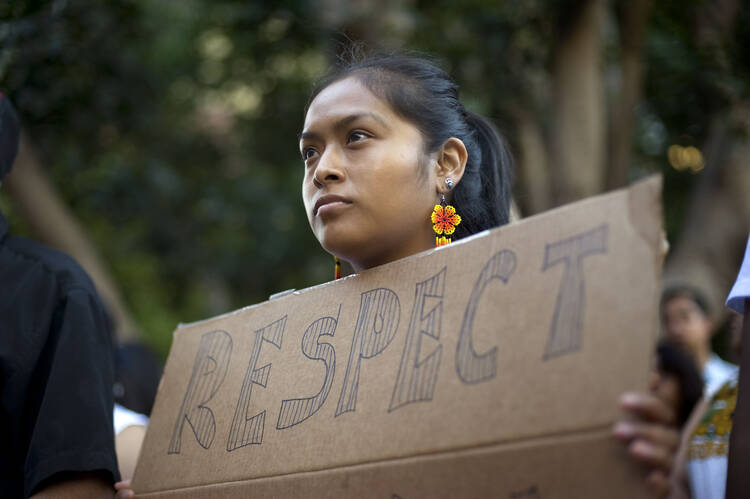The 2016 Republican presidential campaign boils with anti-immigrant rhetoric but candidates’ harsh proposals don’t resonate with most Americans, particularly religious believers and young adults.
A new analysis by the Public Religion Research Institute, released on March 29 finds that many reject harsh proposals such as building a wall along the U.S.-Mexico border and deporting millions of undocumented immigrants, said Dan Cox, director of research for PRRI.
Researchers looked at attitudes toward immigrants, immigration reform and whether there should be a path to citizenship for undocumented immigrants who are already here. They drew from 42,000 interviews conducted for PRRI’s American Values Atlas between April 2015 and early January 2016.
PPRI found that 50 percent of Americans have a favorable view of newcomers from other countries, saying they strengthen U.S. society rather than threaten “traditional American customs and values" (34 percent).
There are significant religious differences, however, with groups dividing by race and ethnicity.
Among most minority religious groups—such as Muslims, Hindus and Buddhists, as well as black and Hispanic members of major Christian groups—more than two in three say the growing number of newcomers strengthens American society.
White Christians are less positive. White evangelical Protestants overall are the most likely to view immigrants as a threat (53 percent). Less than a third (32 percent) see newcomers as an asset to America. However, this group is split sharply by age, with 55 percent of young adults favoring newcomers.
Among white mainline Protestants and white Catholics, slightly more than four in 10 hold a favorable view of immigrants and roughly the same percentage see a threat. Mormons and non-white Protestants registered slightly higher favorable views on newcomers and their cultural impact.
The general public in every state except South Dakota favors an immigration reform policy that includes a path to citizenship, the study finds.
62 percent—including most Democrats and Republicans—say it should be allowed if immigrants meet certain requirements.
19 percent want to see undocumented immigrants identified and deported.
15 percent say they should get legal residency but not citizenship.
Partisan politics make a difference, too.
Republicans—32 percent overall don’t see a threat, including 51 percent of young adults (under age 30).
Independents—52 percent view immigrants favorably.
Democrats—63 percent hold favorable views.
But despite differences on the cultural impact of newcomers, Cox said, “there is remarkably broad agreement on the issue of policy.”
Among all those surveyed who say they see newcomers as a threat, only 46 percent favor a path to citizenship and 13 percent say they should be able to become permanent legal residents. Another 37 percent want to see undocumented immigrants deported, according to the report.
Donald Trump and Texas Sen. Ted Cruz have quite similar policy offerings—blocking entry and calling for mass deportations—while Ohio Gov. John Kasich “is more warmly disposed toward reform,” said Cox.
The survey indicates that the campaign rhetoric “doesn’t seem to be moving the needle at all” on changing people’s views, he said.
Still, for those who already agree with the candidates, the rhetoric is “very animating and likely to get people to the polls.”








